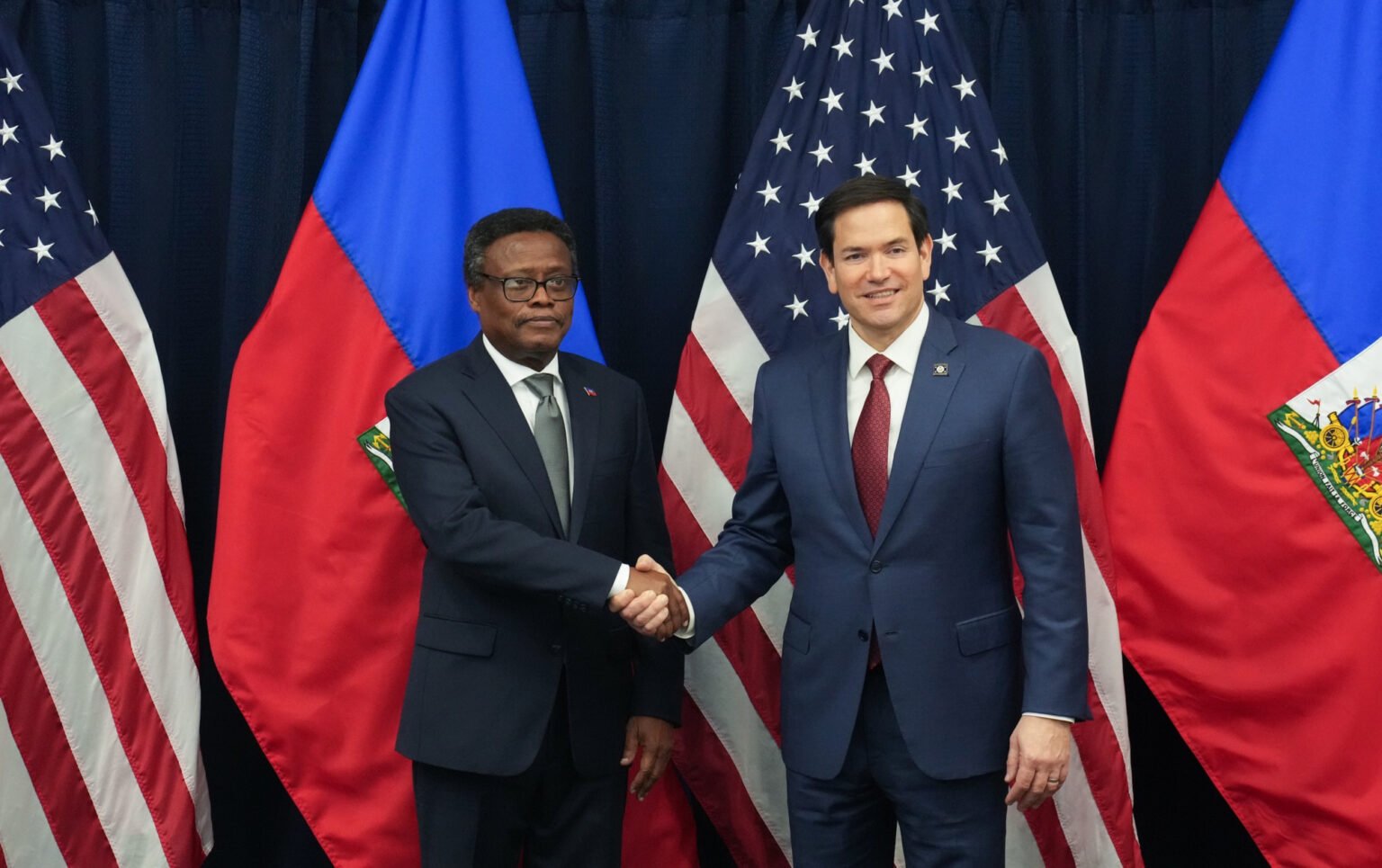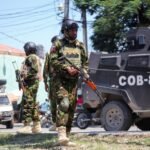A Council Under Command: Fritz Jean Summoned to Jamaica The president of Haiti’s Transitional Presidential Council, Fritz Alphonse Jean, traveled to Jamaica in response to an invitation from U.S. Secretary of State Marco Rubio. This visit, orchestrated by Washington through CARICOM, is emblematic of foreign control over Haitian affairs. Despite the suffering of a population …
Fritz Jean at Washington’s Beck and Call: Between American Orders and Diplomatic Silence


By Maximilien Pierre Richard,
International Reporter, The Haitian Tribune
A Council Under Command: Fritz Jean Summoned to Jamaica
The president of Haiti’s Transitional Presidential Council, Fritz Alphonse Jean, traveled to Jamaica in response to an invitation from U.S. Secretary of State Marco Rubio. This visit, orchestrated by Washington through CARICOM, is emblematic of foreign control over Haitian affairs. Despite the suffering of a population displaced by violence and insecurity, Fritz Jean aligned himself with the Trump administration’s directives without voicing any demands on behalf of the Haitian people.
Regional Meetings and Imperial Instructions
During his trip, Fritz Jean met with several regional leaders, including Jamaican Prime Minister Andrew Holness, Barbadian Prime Minister Mia Mottley, and Secretary of State Marco Rubio. Following these discussions, Rubio reaffirmed the United States’ commitment to fighting gang violence in Haiti and praised the efforts of the Haitian National Police. In contrast, Fritz Jean merely echoed the U.S. talking points, highlighting regional cooperation without addressing his people’s real needs.
An Agenda Serving American Interests
Behind the security rhetoric lies a clear economic and geopolitical agenda: to weaken Venezuela and deepen the Caribbean’s dependence on American energy companies. President Trump has threatened to impose a 25% tariff on any country continuing to do business with Venezuela. Fritz Jean did not object, tacitly accepting a policy that, according to Caribbean private sector experts, could intensify regional inflation.
Diplomatic Silence on Haitian Concerns
Fritz Jean failed to use this platform to defend Haiti’s interests. He said nothing about the restitution of Haiti’s independence ransom or the gold looted by U.S. Marines in 1914. There was no mention of Haitian migrants or any appeal for a deportation moratorium. The rotating president of the CPT remained silent on historical injustices and pressing current issues affecting the Haitian population.
One-Sided Loyalty and Diplomatic Complacency
Fritz Jean received direct instructions: do not purchase low-cost Venezuelan oil, avoid using Chinese maritime transport, and prioritize U.S. commercial interests. According to Caribbean experts, this stance could lead to a regional inflation rate of 30%. Such a position further undermines Haiti’s political and economic autonomy.
Holness Pushes Back Against Rubio Over Cuban Doctors
One of the most striking moments of the visit came when Jamaican Prime Minister Andrew Holness firmly responded to Rubio’s criticism of Cuban medical missions. While the U.S. Secretary of State attempted to demonize the Cuban health program, Holness countered: “Cuban doctors have been of great help to Jamaica, and we ensure our labor laws treat them.” It was a powerful reminder of national sovereignty that Fritz Jean failed to express for his own country.
A Crossroads: Between Submission and Resistance
While nations like Cuba and Nicaragua maintain their sovereignty by continuing oil agreements with Venezuela, Haiti appears to be sinking deeper into an unbalanced relationship with the United States. Haitian progressives strongly denounce this submissive stance and reaffirm their solidarity with the Bolivarian Revolution, demanding a dignified and independent foreign policy for Haiti.
Maximilien Pierre Richard, International Reporter, The Haitian Tribune
Subscribe to Our Newsletter
Keep in touch with our news & offers











